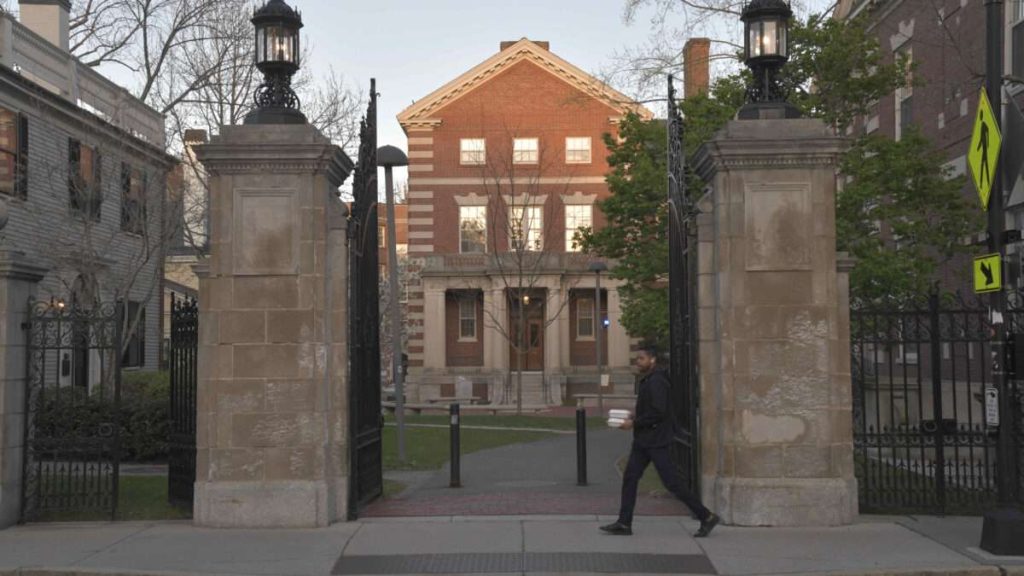Given the censorious conduct of colleges and universities in recent years, it takes a lot to get free speech advocates to treat them as aggrieved parties. But the Trump administration has accomplished that by using the power of the state to coerce changes in campus political climates, disciplinary procedures, and hiring practices. Harvard University is digging in its heels and suing the federal government in response. But if institutions of higher learning really want to assert their independence, they should emulate a school with a lower profile and fewer resources that won its freedom by cutting ties with the government decades ago: They should follow the example of Hillsdale College.
A Growing List of Demands
What began as an investigation into poor treatment of Jewish students at Harvard and other universities, especially during pro-Palestinian protests after the Hamas terrorist organization’s October 7, 2023, attack on Israel, quickly turned into a laundry list of demands. In two letters, the Trump administration dictated terms to Harvard on which further federal funding is conditioned.
The first letter, dated April 3, 2025, demanded “oversight and accountability for biased programs that fuel antisemitism”; stricter enforcement of campus disciplinary policies; merit-based admissions and hiring to replace preferential treatment based on racial and other identitarian criteria; and an end to diversity, equity, and inclusion (DEI) programs which have become controversial for fanning the flames of inter-group hostility. The second letter, which the Trump administration claims was unauthorized, went into further detail, and added “viewpoint diversity in admissions and hiring” as a criteria for receiving money from the federal government.
Many of the ideas in the letters are very good. Elite schools do have an antisemitism problem, and many have replaced a commitment to merit with identitarian obsessions embodied in DEI. As environments for exploring and debating ideas, the most prestigious colleges and universities in the United States are miserable. In September 2023, The Foundation for Individual Rights and Expression (FIRE) gave Harvard the “worst score ever“—zero out of a possible 100—in its college free speech rankings. These schools could use big changes.
“Perhaps Harvard should lose its Tax Exempt Status and be Taxed as a Political Entity if it keeps pushing political, ideological, and terrorist inspired/supporting ‘Sickness?’ Remember, Tax Exempt Status is totally contingent on acting in the PUBLIC INTEREST!,” President Donald Trump posted on Truth Social.
But here’s the thing: Those reforms should not be dictated by the government. In a free society, private organizations get to choose their policies and internal culture—good, bad, or really terrible.
The First Amendment Shields Both Good and Bad Campus Ideas
“Under the First Amendment, tax exemptions have to be distributed without discrimination based on viewpoint; that means that evil views have to be treated the same way as good views,” The Hoover Institution’s Eugene Volokh commented for the Reason-hosted Volokh Conspiracy. Quoting the U.S. Supreme Court, he added: “Though ‘the Government is not required to subsidize’ speakers, once it chooses to provide such a subsidy—including through ‘tax deductions for contributions’—it must abide by ‘the requirement of viewpoint neutrality in the Government’s provision of financial benefits.'”
“The executive branch lacks the authority to impose conditions on the receipt of federal funds just because the president or his underlings are justifiably upset with what American higher education has become,” agrees Case Western Reserve University School of Law’s Jonathan Adler.
That means Harvard, and any other school challenging the Trump administration’s conditions on funding, is likely to prevail in court. The federal government can’t condition grants and tax treatment on ideological grounds. But the Trump administration may well respond by entirely cutting higher education off from taxpayer funds; after all, the government has a huge spending problem, and colleges and universities are already held in low regard by much of the public.
Academia is Testing the Public’s Tolerance
“An increasing proportion of U.S. adults say they have little or no confidence in higher education,” Gallup’s Jeffrey M. Jones reported last year. “As a result, Americans are now nearly equally divided among those who have a great deal or quite a lot of confidence (36%), some confidence (32%), or little or no confidence (32%) in higher education.”
Cutting off colleges from federal funds could be both popular and fiscally sound for a government that habitually overspends. But it would most hurt schools that don’t have Harvard’s $53 billion endowment to fall back on. After all, even as it battled the Trump administration, Harvard stopped charging tuition of students whose families make less than $200,000 per year. Unlike some other schools, Harvard has more than enough money fund its own preferred policies and peculiar ideological institutions.
A Model for Academic Independence
If Harvard’s leaders really want to declare their independence from government meddling, they could emulate a school that did that decades ago: Hillsdale College. In 1984, rather than sort its student body by race as demanded by the federal government, Michigan-based Hillsdale College culminated years of resistance by severing connections with the feds. Since then, the school has refused all federal funds.
In 2007, as the college grew its endowment to $265 million, it similarly cut financial ties with the state of Michigan. Hillsdale had no complaints about state meddling. But a representative told The Chronicle of Higher Education at the time that “this is a prospective move, in keeping with Hillsdale’s tradition and mission.”
Students who need financial aid are provided with funds from private donations. Hillsdale’s fundraising has grown its endowment to over $900 million to finance the college’s activities according to its own principles and philosophical outlook. Students who share the school’s perspective can apply; those who don’t look elsewhere knowing their money won’t be used to support ideas they oppose.
With more than 53 times that sum in its own investment funds, Harvard is well-positioned to emulate Hillsdale. In fact, Hillsdale suggested on its X account that Harvard should “refuse taxpayer money.” That would leave Harvard free to fund its own activities without battling the federal government or further antagonizing taxpayers who don’t care to support the school’s prevailing ideas or campus shenanigans.
A truly independent Harvard could be a model of open inquiry and debate. Or it could be the woke seminary many of its inmates crave. The choice would be its own, funded with its own money. That’s a path that all colleges and universities seeking to decide their fates should consider.
The post Harvard University Should Emulate Hillsdale College and Cut Ties With the Government appeared first on Reason.com.





